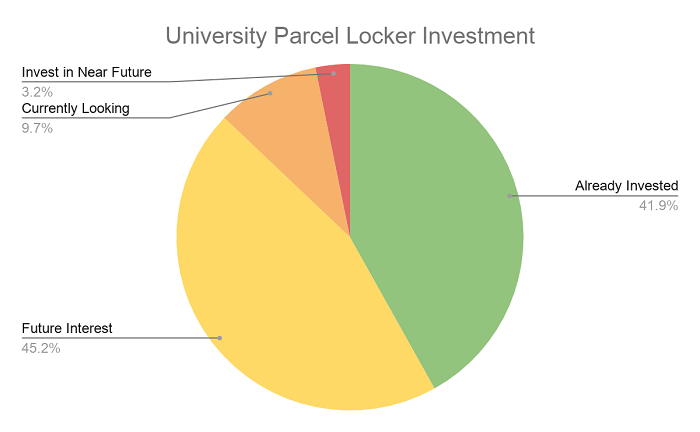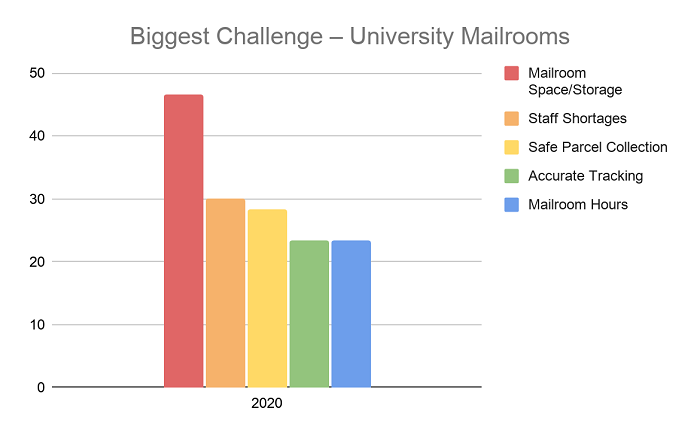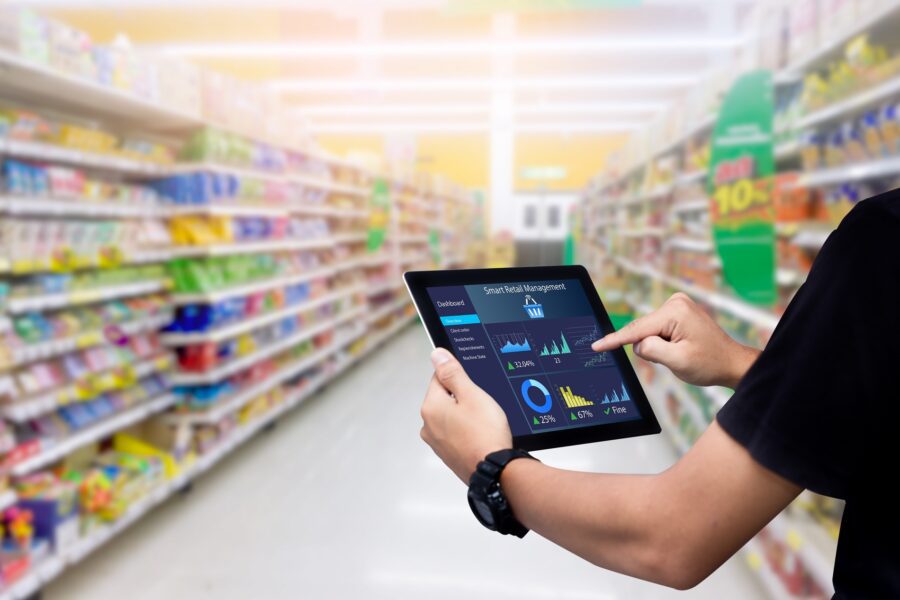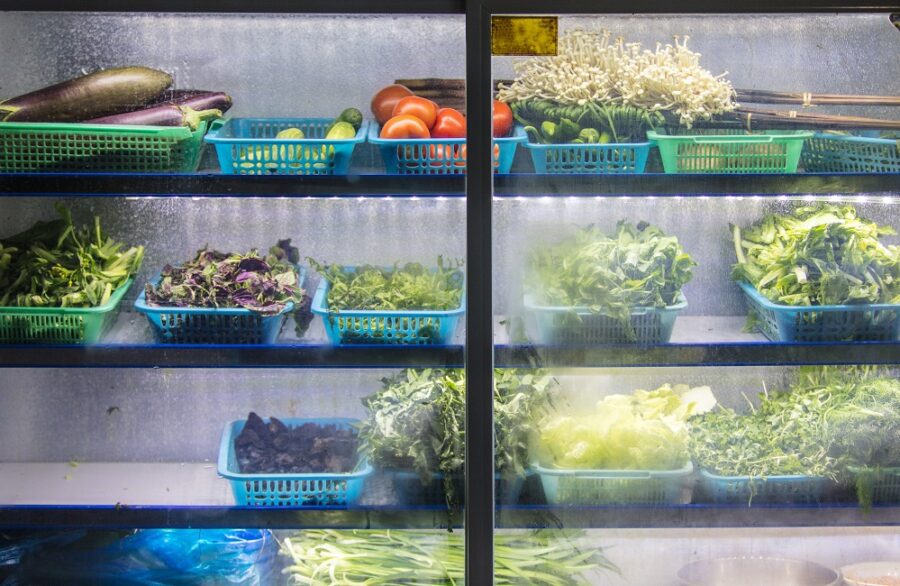
Our Blog
College Shopping: Online Shopping Trends On College Campuses
Written by: Parcel Pending
6 Min Read
Published: January 3, 2021
Updated: April 10, 2023
If you remember your college bookstore as simply a seller of textbooks and logoed merchandise, it’s time to modernize your views on the college bookstore experience. Today’s campus stores now operate as an information portal for updated COVID policies, a recruitment tool for undecided college-bound seniors, and a hub for safely buying school supplies, e-books, textbooks, and most other essentials. In fact, since the outbreak of the pandemic in March of 2020, a higher percentage of new textbooks are being sold due to concerns around potential contamination of used textbooks1.
On some campuses, the college store has become a one-stop shop to check off each thing on your ultimate college packing list, from study guides to dorm room essentials. As such, many institutions are implementing online stores to better meet student demand for an on-demand, convenient college shopping experience.
COVID’s Impact on Student Life: It Changed Everything!
Campus safety quickly asserted itself as the number one priority across college campuses in 2020 and 2021, shifting admission policies, changing athletics protocols, and, ultimately, leading to the institution of hybrid learning. Adjusted policies translated into residence hall closures, shuttered dining rooms, and a temporary ban on large gatherings, severely impacting the college life and student experience. According to the CDC, as a consequence of this disruption to student life, nearly 60% of college students surveyed said they were worried about their mental health2.
As we enter the 2022-2023 academic year, college leadership is challenging the assumption that more college campus amenities lead to a better college experience. As McKinsey & Company highlights, spending on student services has grown four times faster than that allocated for instruction33. However, investing in fewer, better services that boost students’ well-being and engagement might be a more logical choice during these unusual times, especially considering current student consumer trends.
Streamlining Campus Store Operations Using Lockers
Given the importance of the campus store in student life, smart lockers allow for safe, contactless, purchasing and returns. Whether they need a textbook or other school essentials, a college student can easily pick up their orders on their schedule, avoiding a crowded store and simultaneously practicing social distancing. Using smart locker solutions for BOPIS (Buy Online, Pick-up in Store), offer four key benefits to the college bookstore:
- Improved Student Experience – When order pick-up takes as little as 7 seconds, it’s no wonder that 95% of customers who use lockers for order pick-up are more likely to become recurring shoppers.
- Lower Operational Costs – Employing smart locker solutions can save staff an average of 45 hours per month managing online orders.
- Easy, Secure Access to Orders – With the ever-changing guidance around in-person learning and on-campus housing, it can be difficult to accurately ship purchases to students, staff, and faculty. Lockers allow bookstore customers to retrieve orders at their convenience at a secure on-campus location.
- Additional Revenue – Whether picking up from a locker or customer service desk, students are back in the bookstore with the opportunity to purchase again. In fact, 61% of shoppers make an unplanned, additional purchase when retrieving their online orders4.
Implementing smart lockers for your campus store can not only offer convenient, on-demand access to student purchases, but can also boost operational efficiency in higher education.
Leveraging Smart Lockers Beyond the Campus Store & Mailroom
Smart lockers are also impacting the student experience outside the four walls of the college store. In fact, a more common application for smart lockers is in campus mail services.
Recent research conducted by Parcel Pending by Quadient and Spaces4Learning revealed that although almost 42% of college administrators have already invested in smart parcel lockers, a greater number (45%) would be interested in implementing this campus amenity space5.

Whereas most universities implement a parcel locker solution on campus to assist in secure package delivery and retrieval, today they’re being deployed in ways beyond the mail. In essence, a smart locker system is simply another contactless delivery and pick-up point that can be leveraged for campus-wide distribution of documents, laptops, library books, move-in materials, and more. With students, faculty, and staff no longer on campus regularly, smart lockers act as a safe and secure delivery hub for the whole campus community.
The way delivery with a locker system works is simple: parcels are sorted, coded, and delivered to a secure electronic locker. Recipients are then notified by email or text that a package has been delivered to the smart locker. Students, staff, and faculty can then open the locker and be on their way with their delivery in as little as 10 seconds.
The Need for Secure Tracking of Packages
Also highlighted in the joint research between Parcel Pending by Quadient and Spaces4Learning was the need for accurate package tracking. As a number of college students are either international students or out of state residents, having a way to track packages is essential. As shown below, 23% of higher education respondents noted it as one of the key challenges facing the mailroom last fall.

Parcel Pending’s by Quadient’s smart locker system integrates effortlessly with its own Web Tracking System (WTS) or other existing university asset tracking software, providing complete visibility to where packages or other deliveries are at all times without requiring students and staff to register for another service.
This means universities do not need to create a new communication process for students, staff, and faculty who wish to use the lockers. Instead, there is one simple delivery process for all deliveries, regardless of department. That also means that the mail center, library, campus store, or campus IT, can each use the software to access chain-of-custody for any deliveries made using the lockers.
Smart Lockers to Help Financial Challenges on Campus
COVID’s hit to the colleges’ bottom line is significant. A report from the NAFSA: Association of International Educators estimates that institutions will lose at least $3 billion due to the decline in international students enrollment in fall 2020, plus the NCAA announced that Division I schools may lose to $375 million due to cancellations of various athletics tournaments6,7. That means any improvements that could save time and money while providing a premium college life experience are under consideration.
Recent research suggests that switching to intelligent university lockers can boost staff productivity by a whopping 30%! Pair that with Parcel Pending by Quadient’s flexible technology and implementing lockers becomes quick, easy, and cost-effective for universities, as funds can be pooled from various departments to reduce overall investment cost.
COVID has clearly upended college student life. With most campuses using a hybrid learning model, it’s critical to adopt practices that boost campus community safety, efficiency, and productivity while lowering costs. Smart lockers offer a fantastic opportunity to meet these needs for both current students and faculty members.
Parcel Pending by Quadient is offering a number of flexible commitment terms that can help you bridge budget gaps attributed to COVID-related disruptions in campus operations. Let us take care of your deliveries so you can take care of your students, faculty, and staff. Learn more about our university parcel management solutions here.
Sources:
- CampusBooks.com. (2020, July 30). COVID-19 Severely Impacts Back To School Textbook Industry Reports CampusBooks.com [Press release]. Retrieved from: https://www.prnewswire.com/news/campusbooks.com/
- Dennon, Anne. BestColleges. The Altered Reality of College Life During COVID-19. (2020, November 6). https://www.bestcolleges.com/blog/covid-19-altered-reality-college/.
- Dua, André, et al. McKinsey & Company. Reimagining higher education in the United States. (2020, October 26). https://www.mckinsey.com/industries/public-and-social-sector/our-insights/reimagining-higher-education-in-the-united-states.
- Parcel Pending. Omnichannel Retail Strategy: Bringing Online Shoppers to Brick & Mortar Stores. (2020, June 1). https://www.parcelpending.com/en-ca/blog/omnichannel-retail-strategy-bringing-online-shoppers-to-brick-mortar-stores/.
- Spaces4Learning & Parcel Pending by Quadient. (2020, December). Campus Operations During the Pandemic [White paper]. Retrieved from: https://spaces4learning.com/Whitepapers/2020/12/Campus-Operations-During-the-Pandemic.aspx
- NAFSA: Association of International Educators. (2020, May). NAFSA Financial Impact Survey [Report]. Retrieved from: https://www.nafsa.org/policy-and-advocacy/policy-resources/nafsa-2020-financial-impact-survey
- NCAA. (2020, March 26). NCAA presidents set revised financial distribution to support college athletes [Press release]. Retrieved from: https://www.ncaa.org/about/resources/media-center/news



